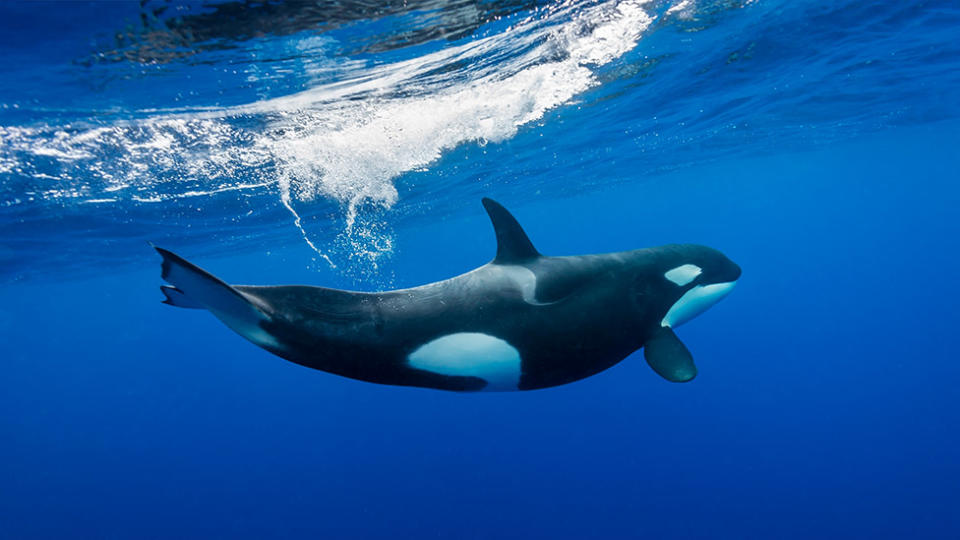Orca who carried dead calf around for 17 days is pregnant again
Tahlequah the orca who carried her dead calf for 17 days and more than 1600km back in 2018, is pregnant again, according to scientists.
Dr Holly Fearnbach and Dr John Durban from Southall Environmental Associates (SEA) have been collecting aerial images of the Southern Resident orca population using drones since early July this year.
According to The Seattle Times, the images of the endangered whales revealed pregnancies amid the J, K and L pods, among those, was Tahlequah, who is also known as J35.
The pregnancies within all three of the pods is not unusual but Tahlequah’s pregnancy carries special meaning for a region that grieved the death of her calf with her.
The whales known to frequent Puget Sound, an inlet in the Pacific Ocean off the coast of Washington state, are struggling to survive. The current population of resident orcas is 72.
Many of the pregnancies are not successful, according to the Associated Press. Researcher Sam Wasser of the Center for Conservation Biology at the University of Washington has found two thirds of all pregnancies among the whales are lost.
“Studies by our colleagues at the University of Washington have shown that these reproductive failures are linked to nutrition and access to their Chinook salmon prey,” SEA said in a release.
“So we hope folks on the water can give the Southern Residents plenty of space to forage at this important time.”

Dr Fearnbach told The Seattle Times some of the whales in the pods are looking quite thin, and some of them are “critically thin”.
Boaters should respect the whales’ space and give them the quiet they need, Fearnbach and Durban said.
Whales use sound to hunt, and boat disturbance and underwater vessel noise is one of the three main threats to their survival, in addition to lack of adequate, available salmon and pollution.
In 2018, Tahlequah’s story made international headlines, and her display of grief was “unusual”, Ken Balcomb, senior scientist at the Centre for Whale Research told BBC at the time.
Do you have a story tip? Email: newsroomau@yahoonews.com.
You can also follow us on Facebook, Instagram and Twitter and download the Yahoo News app from the App Store or Google Play.



